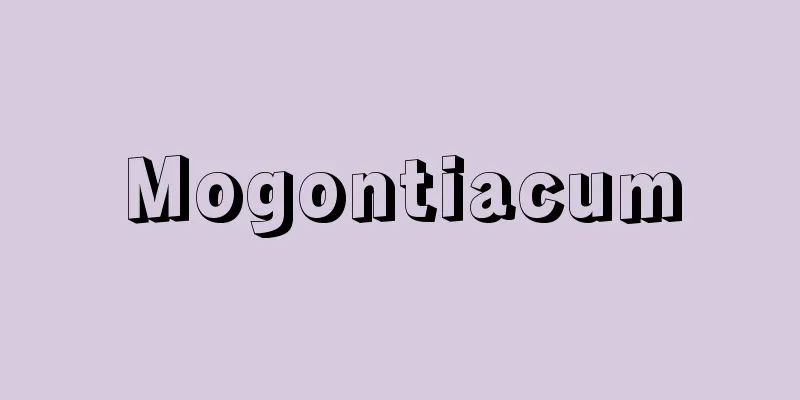Mogontiacum

|
...Population: 185,000 (1995). The name comes from Mogontiacum, a military camp built by the Romans around 38 BC on the remains of a shrine to Mogon, the indigenous Celtic god of light. In 9 BC, it became the base for General Drusus' fourth invasion of Germania, and urban life blossomed as soldiers' families, merchants, and industrialists moved in. *Some of the terminology that mentions "Mogontiacum" is listed below. Source | Heibonsha World Encyclopedia 2nd Edition | Information |
|
…人口18万5000(1995)。地名は,紀元前38年ごろローマ人が先住ケルト人の光の神モゴンの祭場跡に建設した軍団宿営地モゴンティアクムMogontiacumに由来する。前9年将軍ドルススの第4次ゲルマニア進攻の基地となり,兵士の家族,商工業者などの移住につれて,都市生活が開花した。… ※「Mogontiacum」について言及している用語解説の一部を掲載しています。 出典|株式会社平凡社世界大百科事典 第2版について | 情報 |
>>: Moguchaya kuchka (English notation) Moguchayakuchka
Recommend
Abies Oil - Abiesyu
…Japan imports all of it from the United States a...
Behçet's disease
What kind of disease is it? ●Main symptoms and pro...
Egyptian Revolution
On July 23, 1952, the Free Officers Movement, led...
Butzbach, J. ButzbachJ
…As sung in Carmina Burana, many of the wandering...
Marut
In particular, the existence of a mythology cente...
Cassandra japonica - Cassandra japonica
A biennial plant of the legume family (APG classi...
Konodai
This district is located at the northwestern edge...
Kumokiri Nizaemon - Kumokiri Nizaemon
A leader of Edo-period thieves who is often featu...
Satsunan Islands
The term "Satsuma-Nansho" refers to the...
Kimura Matajiro - Kimura Matajiro
...the name of a town in Nishi-ku, Osaka City. At...
Goormaghtigh's cell
...the intervening portion passes through the col...
Silk wool
A fabric woven with silk and worsted yarn. It is a...
Kana calendar - Kanagoyomi
This refers to Japanese calendars written in kana...
Gorin
In Confucianism, human relationships are divided ...
Hypericaceae - Otogiri souka
Dicotyledonous, polypetalous. Shrubs or herbs, le...









